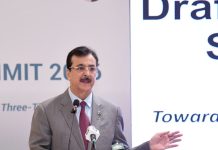Staff Report
ISLAMABAD: Pakistan Institute of Development Economics (PIDE) is set to hold its first-ever RASTA Conference on 28th and 29th March 2022, at local Hotel in Bhurban. The program includes 08 sessions, 18 research papers under the Competitive Grants Programme (CGP), 04 Demand Driven Research (DDR) projects’ presentations, and 03 talks.
The research moot comprises diverse research themes. These include energy issues, urban development, technology, and public service delivery, social sector development, markets and regulation, the political economy of development and reform, and sludge – the administrative burden.
Conference participants will be presenting their studies under these broad themes, probing the key issues while putting forward indigenous solutions for local problems. The participants will be joining in from the University of Oxford – UK, New School – Moscow, Ryerson University – Canada, National University of Science and Technology (NUST), Lahore University of Management Sciences (LUMS), University of Peshawar, Quaid-e-Azam University, Applied Economics Research Center, Baluchistan Council for Peace and Policy (BCPP), University of Turbat, IBA Sukkur and BUITEMS Quetta. Besides, PIDE will be showcasing its most recent research work a day earlier over welcome dinner – an icebreaking and networking session. Likewise, the Institute will also be formally unveiling its novel study on Pakistani cities – PIDE Citypedia. PIDE’s Research for Social Transformation and Advancement (RASTA) program is a multi-year competitive grants program for policy-oriented research in Pakistan, under the Public Sector Development Program (PSDP) of the Ministry of Planning, Development, and Special Initiatives, the Government of Pakistan.
Its mission is to develop a high-quality research network of academia and think tanks across Pakistan producing high-quality, evidence-based policy research to inform Pakistan’s public policy process. Moreover, the program seeks to develop local thought communities and generate contextualized knowledge. Substantial outputs are to be completed in important areas of public policy that would produce insightful research and facilitate goals that the Government wants to achieve according to its vision.




